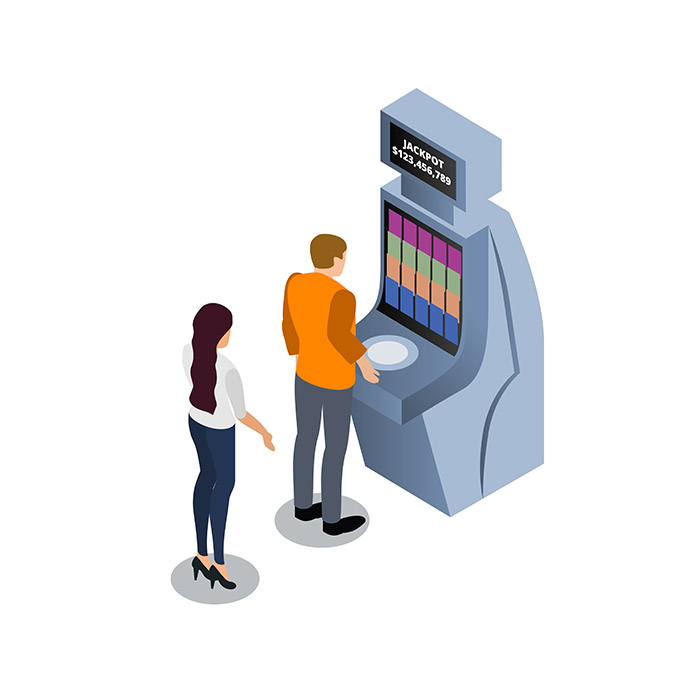
Article
An Interview with Lottery Leaders: Innovation in a Changing Landscape
Efram Lebovits, Evin Demirli — February 11, 2025
In October 2024, the World Lottery Association (WLA) celebrated its 25th anniversary at the World Lottery Summit in Paris. Lottery leaders and vendors from around the world gathered to exchange ideas and learn from one another. The conference’s topics focused on the positive impact that lottery makes on society and inspiring innovation in the category.
Taking inspiration from the Summit, Level5’s Efram Lebovits (Managing Partner) and Evin Demirli (Director) took the opportunity to speak with leaders from around the globe to understand their outlook on the lottery sector and the innovation their organizations are driving within it.
Throughout this article, you will find condensed insights from interviews with six lottery leaders:
- Andreas Kötter, CEO, Westlotto (Germany) and President of the World Lottery Association
- Avi Levy, Director, Instant Tickets, Mifal Hapais (Israel)
- Isabelle Jean, EVP & COO of Lotteries, Loto-Québec (Canada)
- Olli Sarekoski, CEO, Veikkaus (Finland)
- Rebecca Paul, CEO, Tennessee Lottery (United States) and former President of the World Lottery Association
- Stéphane Pallez, Chairwoman & CEO, FDJ (France)
The landscape of lottery operators is diverse. The nature and size of organizations and the regulatory environment in which they operate can vary from region to region. In some US states, such as Tennessee or South Carolina, only cash purchases for lottery games are allowed, whereas Nordic countries, such as Finland or Norway, tend to be very digitized and have the permission to do so within their regulatory environment. Different environments drive operators to approach business strategy and innovation in very different ways.
The Current State of the Category
All leaders agreed that the lottery category is at a point of inflection. Operators are embracing new business models, the competitive environment is intensifying, and player expectations are evolving, requiring product and channel innovation.
Stéphane Pallez of FDJ explained, “Some lotteries have evolved [from state-run operators] into organizations offering a broad range of services and gaming options, operating across multiple territories, and increasingly becoming part of larger corporate groups.” This is creating a very interesting dynamic between lottery organizations. Looking ahead, she remarked, “the market is likely to feature a blend of different types of operators, some with several gaming verticals and scale effects. And competition amongst these is expected to intensify.”
Beyond the changing business dynamics of lottery operators themselves, there is a shifting regulatory and competitive environment. There is an ongoing push in many regions to legalize private operations of sports-betting and online casino (i.e., igaming). Olli Sarekoski of Veikkaus emphasized the importance for small and medium sized operators to think carefully about strategy for sustained success in the long run. He shared, “Lottery and igaming are converging. Personally, I would like to see lottery companies embrace this transformation and manage it in a responsible way.”
On top of this, Isabelle Jean of Loto-Québec highlighted the changing nature of players’ expectations, and the challenges operators face quickly adapting to them. She stated, “As consumption habits evolve and customers increasingly expect personalized, digital experiences, we must ensure that we stay ahead of the curve.”
Game Innovation

Lottery innovations take shape in different ways, influenced by the scope and regulatory environment of operators. Some innovations come in the form of simple, yet clever and creative solutions to build engaging experiences and relevance. Other innovations are pushing the boundaries of what we know and expect a lottery game to be.
Building a Strong Instant Category – Tennessee Lottery
Tennessee Lottery has built a successful instants business that has resulted in strong business impact. They have been able to achieve high rates of per capita spend while maintaining lower-than-average payouts.
What is it that drives players to spend more while getting less by way of prize payout in return? Success has come via a collection of thoughtful tactics applied across the value chain and player experience.
As Rebecca Paul explained to us, Tennessee Lottery takes a disciplined approach to prize payout management. Sitting roughly 10 percentage points lower than the US average payout for instants, they have “room to grow in prize structures” which can feed into promotions and create buzz, when they need to pull that lever.
Retailers play an important role in the lottery value chain and player experience. “We pay retailers higher commissions than many other lotteries,” said Rebecca. This incentivizes them to engage with their customers, up and cross-sell products, and create a better purchase and win experience for players.
Moreover, they introduced a creative approach to get the most out of instant print runs, even after all top prizes have been claimed, which many other lotteries have gone on to adopt. “We created a VIP Club,” noted Rebecca, “where players can submit non-winning tickets to be entered into a draw for one final top prize.” This helps keep the dream alive after a loss and rewards players for their loyalty, all while maximizing the business impact for Tennessee Lottery.
Winning Through Simplicity and Relevance – Mifal Hapais
Avi Levy has played a pivotal role building successful product lines and brands for Mifal Hapais through creative tactics that don’t require large “R&D” investments typically associated with innovation.
The adjustments made to their Pick 4 game, simplifying it and focusing on relevant engagement, has been one such innovative success. “Pick 4 is a very simple game, but it was perceived as being confusing,” shared Avi. “We simplified the game to just one bet slip for all four cards and simplified the draw schedule to occur every two hours.”
Not only did they simplify the game, but they made it more relatable and engaging by using playing cards instead of numbers. Avi noted, “Cards are much more engaging than numbers. People will ‘count cards’ and try to predict if a number or character will show up, if it is red or black. Nobody would do this with numbers alone.”
To further build on engagement, they made draws an event by broadcasting them online and at all points of sale. “This created a lot of attention” said Avi, “people will stop in stores to watch the draws. They watch it a couple of times a day. It becomes real for them, which results in a lot of talk around it”
Learning From the Success of Video Games – Loto-Québec
Other operators, such as Loto-Québec, are pursuing big “I” innovation and pushing the boundaries of what a “lottery game” looks and feels like. Isabelle Jean from Loto-Québec spoke about their ongoing initiative to incorporate video gaming features and experiences into lottery play.
Isabelle shared, “We are collaborating with a local indie game developers to prototype interactive lottery games that merge video game features with lottery gameplay. While this project is still in development, it’s an exciting opportunity to engage younger audiences who may not be as interested in traditional lottery products.”

Channel Innovation
While many operators are focused on growing digital, it is undeniable that retail remains a core channel in most jurisdictions – and the only channel for some. Many operators are focusing on expanding physical channels and evolving the in-store experience through technological innovation.
Achieving Flexibility Through POS Innovation – Westlotto
Consider the approach taken by Westlotto to build more flexible and cost-effective terminal solutions in the German market. “We recognized a need for smaller terminals at point of sale,” shared Andreas. “We have developed a terminal built from a standard tablet, where the camera can read the slip using AI. Players fill out a physical slip, scan it, then they get their confirmation printed.”
Andreas expanded, “The tablets have even made us more flexible in supplier negotiations for big terminals. When the terminals in market are at end of life, we can preserve the channel with a tablet solution.” Westlotto went as far as to even purchase 3D printers so they can design and produce their own housing for the tablets.
Not only have these terminals helped to grow POS footprint and strengthen their supply chain, it has also had a big impact on Westlotto’s culture. Andreas concluded “This has helped keep our people interested and innovative in their roles. They saw a problem and had permission to go solve it.”
Expanding Retail Footprint Through Self-Service – Loto-Québec
Self-service technology has improved vastly in recent years, with more technology solutions available on the market and more regulatory frameworks that allow for these types of solutions. Many operators are using self-service terminals (i.e., SSTs, vending machines) to augment the in-store experience, streamline operations within existing retail channels, and expand the footprint of lottery in new physical channels.
Ultimately, SST’s are allowing Loto-Québec to meet the player where they are. Isabelle shared, “We’re exploring new sales avenues, such as integrating our products into self-checkout systems and experimenting with vending machines in non-traditional locations like train stations and malls. We believe these projects will help us meet the evolving expectations of our customers in the future.”

Known Play & Responsible Gaming
Customer data is the engine that drives decisions and innovation in most categories. It has historically been a challenge in lottery, however, due to the high degree of anonymous play. Moreover, anonymity presents challenges in promoting responsible gaming, which is a key priority of most every lottery operator we’ve spoken with over the years.
With that said, the shift toward digitization is enabling more operators with the ability to collect player data, create personalized experiences, and implement sophisticated tools and controls to promote responsible gaming.
The Shift to 100% Known Play – Veikkaus
Veikkaus is leading the charge with respect to registered play. “We made a bold decision that all gaming will be registered at the beginning of 2024. 100% of gaming across all channels is registered, with 2.6M players”, remarked Olli. This even encompasses retail channels where players use a physical or mobile player card at point of sale.
Olli spoke to three primary objectives of this bold move…
First is responsible gaming. Olli noted, “It’s not acceptable to take money from fragile customers, even if it goes to a good cause. This is why registered play is so important, so you can see how tools are in use and protect players.”
The second objective is to support anti-money laundering requirements. “You need to know your customers, like in banking,” said Olli. “If you play anonymously, it is impossible to monitor behaviours.”
Lastly, it will result in a wealth of player data that will help Veikkaus build hyper-personalized experiences. Olli expanded, “Our vision is to create a unique experience for each individual customer”
While Veikkaus is trailblazing this path, not every lottery operator will have the means to follow given infrastructure and cultural constraints. As Olli acknowledged, “It would be more difficult to implement this in other cultures where trust [in institutions] is lacking.”
A Preventative Approach to Responsible Gaming – Westlotto
Westlotto is taking a proactive approach to responsible gaming by educating young people. This was driven by the explosive growth of loot box mechanics in video games (i.e., reward systems that involve wagering something of value for a random outcome) which are exposing young people to gambling-like behaviour from an early age.
Andreas explained, “We changed our responsible gaming philosophy [to include young people] because loot boxes became so prevalent. We feel a responsibility for society.” He continued, “In some video games, children can wager for a chance to win something. They lose sight of real money because it’s done by virtual currency. It’s educating kids to be gamblers. It drives addiction. It is our responsibility to address this before these kids become adults.”
Westlotto’s effort in this area includes advocacy and education with politicians in addition to educational programming for youth and caregivers. Andreas shared, “We created a program for kids in schools between 9th and 10th grade under a separate brand than Westlotto to raise the digital competence of kids. They learn about things like their rights in a digital world, what an influencer does, and about addiction.”
The program has been such a success that they are now focused on cooperating closely with the Minister of Education to expand it into a digital platform called Game Shift, targeted at youth, parents, and teachers.

Making a Positive Impact
The leading theme of the 2024 World Lottery Summit was about making a positive impact on society. For all state-sanctioned lotteries, this is a major point of difference versus private gaming operators. Through our interviews, we heard of many different approaches to drive greater impact and position lottery organizations to win.
Directly Linking Games to Good Causes – FDJ
Some operators have directly linked good causes to specific lottery games. This helps make the positive impact more tangible – players are reminded every time they play and know exactly where the money is going. Stéphane shared, “I take great pride in our games dedicated to good causes, which provide us with the opportunity to raise awareness among our players and generate new resources for the causes we support.”
One of FDJ’s product lines of this nature is Mission Patrimoine, which was created to “preserve and restore France’s national heritage,” said Stéphane. She continued, “since 2018, FDJ has organized this special range of lottery games, including scratch cards and draws, raising over €180 million to support the conservation of endangered heritage sites through the Fondation du Patrimoine.”
Their efforts didn’t stop there, however. Stéphane expanded, “Building upon this success [of Mission Patrimoine], in 2023 we launched a new solidarity game in partnership with the French Biodiversity Office (Office Français de la Biodiversité – OFB), called Mission Nature.”
Creating Win-Win Scenarios Through Local Partnerships – Loto-Québec
Loto-Québec is building brand relevance and promoting positive impact in communities through partnerships with beloved local brands. Isabelle shared, “We’ve integrated local brands, such as Yum Yum [a local potato chip brand], into our product lines, which not only strengthens our connection to the community but also highlights our dedication to supporting local businesses.”
Moreover, Loto-Québec is expanding on their social commitments and sustainable practices in their supply chain. “Our use of 100% recycled paper for lottery tickets is a global first, showcasing our leadership in eco-responsibility and our dedication to sustainable practices,” said Isabelle.
Building Favourable Brand Perceptions Through Beneficiary Advertising – Tennessee Lottery
At the beginning of the article we mentioned that lottery operators take many different shapes and sizes. The same can be said about the way in which they deliver positive impact. Some lotteries contribute to specific causes while others contribute to a general government budget.
Rebecca spoke about how Tennessee Lottery leverages their direct contribution toward education to position themselves favourably in the public’s eye. She emphasized, “Our beneficiary is one that’s very popular, very easy to promote, and very identifiable with.”
Proceeds from the Tennessee Lottery are used to fund scholarships and grants for students in the state. In fact, they have raised over $7.5B for education in Tennessee, much of which is going toward over 2 million scholarships and grants being awarded.
Rebecca further explained that they dedicate “25% – 35% of advertising spend toward beneficiary advertising.” Advertising the direct impact made by Tennessee Lottery helps differentiate it from private operators, drive purchases from segments who are impact-motivated, and dampens the negative sentiment of losing. Rebecca concluded, “In beneficiary campaigns scholarships are a primary benefit targeted at segments who care deeply about that. That’s probably not the case in most jurisdictions, because it’s not as easy to pinpoint where the money goes.”
Parting Thoughts
The World Lottery Summit and these subsequent interviews highlighted the great diversity in initiatives being pursued by lotteries around the world. While many of the initiatives discussed in this article emerged out of unique local contexts, we believe these insights can be applied broadly.
In parting, Rebecca emphasized that all lotteries must keep a steadfast focus on integrity as they innovate and navigate through a rapidly changing lottery landscape. She doubled down on the fact that “The product we sell is integrity. If the player doesn’t know with certainty they have the same chance of winning as everyone else, why would they buy a ticket? We must protect the integrity of our product and can’t lose sight of that when innovating.”




